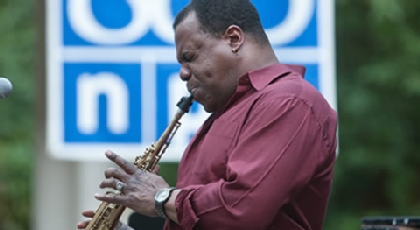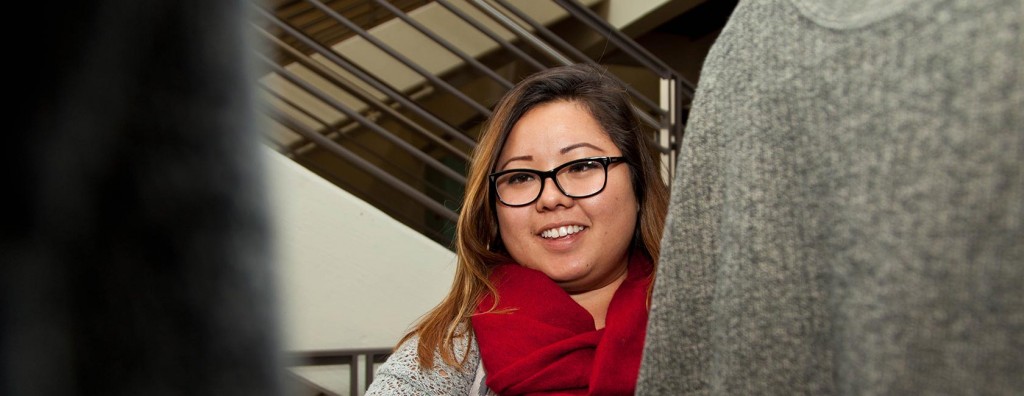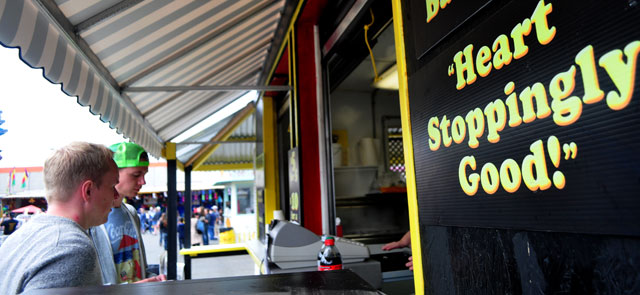Page 241 • (3,655 results in 0.058 seconds)
-

small class sizes where professors knew my name and offered office hours to chat about academics, career options and life in general. How did your experience and background prepare and inspire you for your new role as Director of Career, Learning & Engagement? Working with teenagers (as a high school English teacher) taught me that one of my biggest passions is helping students find their vocational calling, and then helping them turn their dreams into reality. Are you working on any projects that
-

battery would presumably be higher,” Waldow explains. “So, that could translate into being able to drive more miles in an electric car before recharging, for example.”Waldow says requiring less frequent charging can remove some of the barriers that dissuade people from choosing electric cars. “Depending on how much you want to charge an electric car battery, it takes 30-40 minutes for a good charge. People may become impatient with that and just want to go to a gas station and fill up,” he says. “The
-

series again starts on the right note with award-winning trumpeter Thomas Marriott Thursday, July 7. The university event is in its 13th year and has featured returning and new artists every summer. The concerts are free to the public and a perfect way to enjoy jazz in the setting of the Mary Baker Russell building’s outdoor amphitheater. Along with the series being free, refreshments are provided and star charts are passed out for those interested in viewing the night sky from the campus
-
violence and what lessons might be drawn for us, here at PLU. The example that came to mind was Le Chambon-sur-Lignon, a small village in south central France, which during the days of World War II sheltered approximately 5,000 Jews and other refugees from the Nazis in what one of these sheltered children, film maker Pierre Sauvage, called “a conspiracy of Goodness.”2 During a time when many people found their consciences challenged to respond to the violence in their midst, one community led by two
-
March 9, 2009 Sludge from the grill to be recycled The gooey mess which sloughs from the grill at the UC may look like something that you’d rather just toss and forget about. But to Wendy Robins and Colin Clifford, it’s pure gold. Or more specifically, the yellow smelly gunk means that PLU will be paid $100 a year to sell its grease to the Arlington-based Standard Biodiesel, rather than pay a rendering plant $300 a year to get rid of the mess, said Robins, day operations manager for dining
-
, serving as the president of the local honor society and working at the local radio station. When she came to PLU, there was never any question that she’d get involved, simply where. Her advisor suggested she consider student leadership with ASPLU. The next day, Relfe was running for an off-campus transfer senator position – which she won. The experience gave Relfe her cause: improving the orientation process to make transfer students feel more comfortable. “It can be hard, especially at first, to make
-

to recycle their waste and unplug their electronics for the sake of sustainability and education. The final event of the series will be a recycling fashion show in The Cave on Oct. 30. The Residence Hall Association (RHA) works in conjunction with Associated Students of PLU, Environmental Services and Facilities Management to coordinate and execute UnPLUgged each year. This year’s UnPLUgged events emphasize how PLU community members can be sustainable in tangible, relatable ways. So far, RHA has
-

the fair’s famous fried foods. In fact, after he heard about how gross some of the fried fair food is from his Puyallup native roommates, Hansen decided that was reason enough to go to the fair. The trio gobbled up a dish of deep fried Oreos and shared some chocolate covered bacon pieces, both of which were more palatable than they imagined. Hansen continued his search for the ultimate fried fair food and landed at the fried butter booth, where his international peers had been awing in disgust a
-

debt for a fraction of the cost and helps folks run crowdfunding campaigns to settle their medical debt. For Young, part of the appeal of working with RIP Medical Debt was the work the organization is doing in Washington and nearby states. “They own about 15k of debt in Washington and significantly more in Idaho and Montana, so we are working to raise money to settle as much of this as possible,” Young says. Young’s students worked with a representative from the RIP Medical Debt to design a social
-
April 19, 2010 Claim: You are what you eat Whether you had bacon and eggs for breakfast, a glass of milk and potato chips with your lunch, or a cheeseburger and milkshake for dinner, chances are you ate a lot of corn today. How so? Farm animals in the United States chowed-down on 5.25 billion bushels – that’s 147 million tons – of feed corn in 2008. Their metabolisms convert corn’s simple carbohydrates into the complex animal proteins and fats that make up meat, dairy products and eggs
Do you have any feedback for us? If so, feel free to use our Feedback Form.


